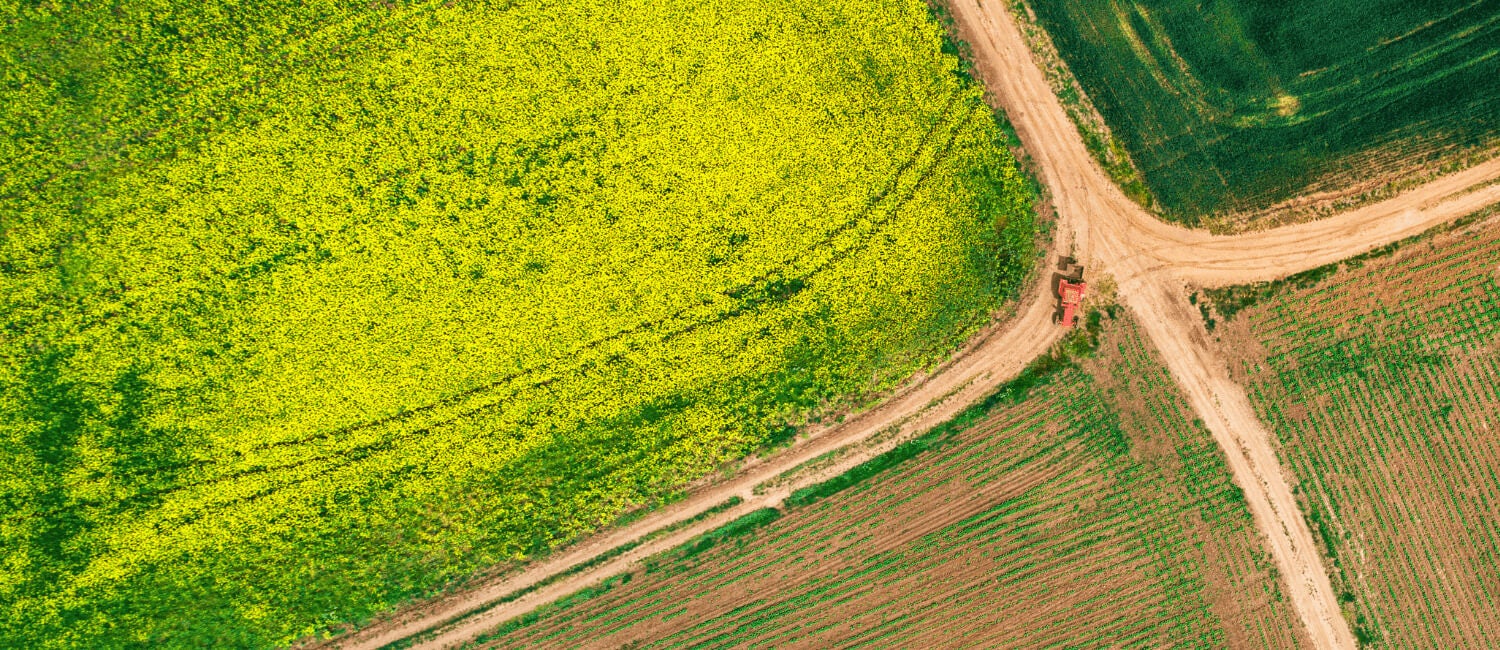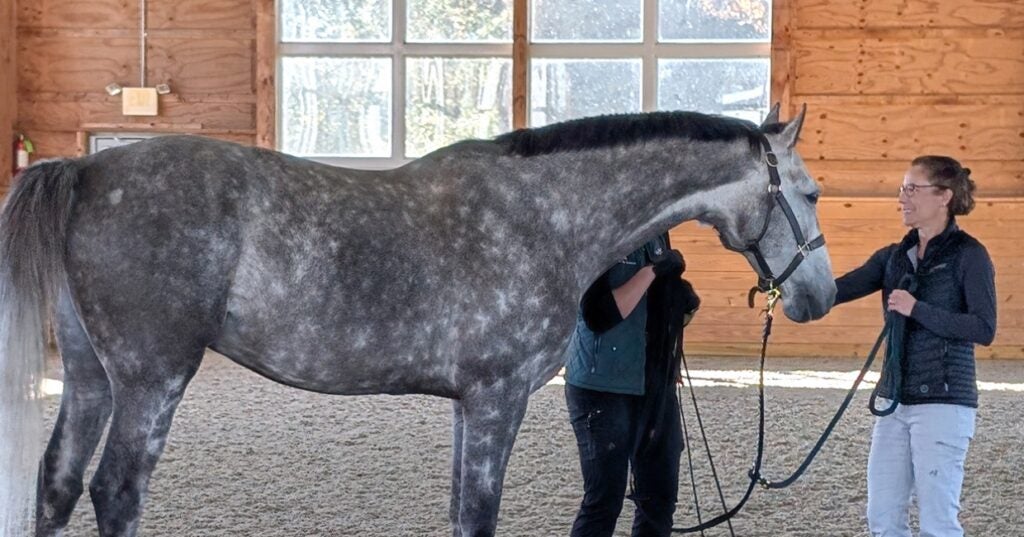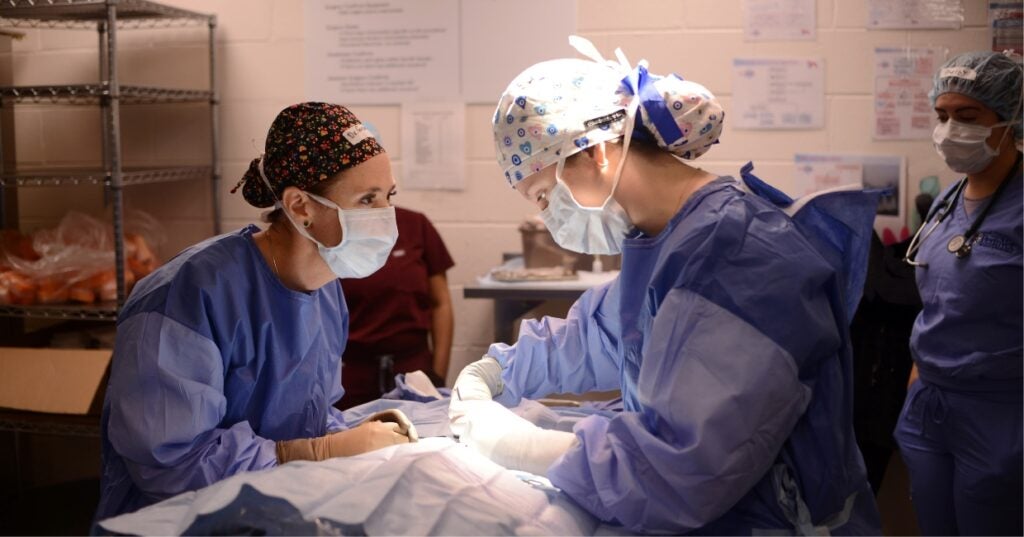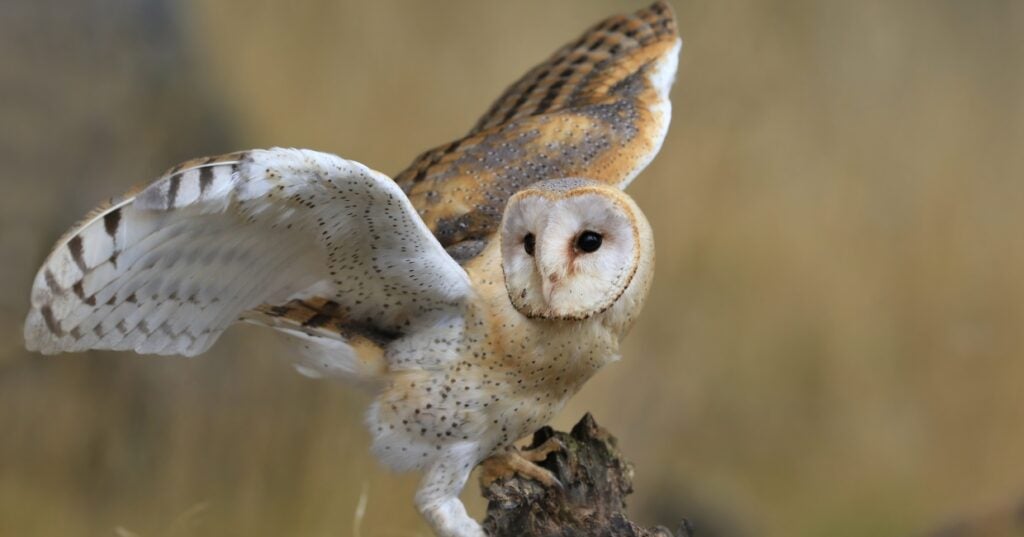University of Pennsylvania’s School of Veterinary Medicine Aims to Accelerate Climate Action, Galvanize Veterinary Profession

The University of Pennsylvania’s School of Veterinary Medicine (Penn Vet) released a statement today outlining a forward-looking approach to reduce school-specific and global emissions and prepare for climate change impacts. The declaration draft affirms Penn Vet’s commitment to climate-oriented operational and academic goals in 2023, and 100% carbon neutrality no later than 2042. Penn Vet will partner with the University of Pennsylvania’s two sustainability entities: the Environmental Innovation Initiative, and the Sustainability Group, to accelerate inventories and future actions in response to climate change and sustained weather events.
“Increased heatwaves, droughts and floods are already exceeding plants’ and animals’ tolerance thresholds, driving mass mortalities in species such as trees and corals,” said officials from the United Nations’ Intergovernmental Panel on Climate Change. “These weather extremes are occurring simultaneously, causing cascading impacts that are increasingly difficult to manage.
The impact of heat and precipitation persistence intensifies zoonotic disease transmission; and magnifies the very real risk of major spillover events that could compromise the health of wildlife, livestock, domestic animals, and human populations. Significantly, food systems are threatened, with disproportionate impact on vulnerable nations and people.
“With this position statement, Penn Vet aims to better connect the veterinary profession with the climate crisis,” said Andrew M. Hoffman, DVM, DVSc, DACVIM, Gilbert S. Kahn Dean of Veterinary Medicine. “Our profession is uniquely and deeply intertwined with the climate impact on the health of animals, people, and the environment. It is a moral imperative for us to not only lead in raising awareness about climate change, but to contribute significantly to mitigating the causes.”
A CLIMATE CRISIS CREATED BY HUMAN ACTIVITIES currently threatens the health of all lifeforms on the planet that we serve to protect. Emissions of greenhouse gases (GHG), principally carbon dioxide (CO2) and methane (CH4) from energy production, transportation, industry, food production, waste, and landfills, are predicted with high confidence to continue to warm the planet. Consistent with that trend, each of the last four decades have been warmer than the previous one.
THE CONSEQUENCES OF ONGOING CARBON EMISSIONS outlined in the Sixth Assessment Report from the United Nation’s Intergovernmental Panel on Climate Change (IPCC), include extreme weather events, ocean warming and acidification, the melting of sea ice, coastal flooding, megadroughts, degradation of ecosystem health and biodiversity, and the collapse of agricultural systems. These will fuel food insecurity and famine, mass displacements of people, and numerous public health threats.
THE CLIMATE CRISIS WILL DISPROPORTIONATELY IMPACT PEOPLE, ANIMALS, AND THE ENVIRONMENTS of the Global South, especially Africa and the Middle East, despite their minimal contribution to carbon emissions. Climate change in these regions will impact Indigenous people, women and girls, historically marginalized, and lower-resourced populations. Within the U.S., the EPA predicts that human vulnerability will be highest among coastal communities, minority populations, people over 65, laborers and industries exposed to heat (e.g. farm laborers), and citizens without high school diplomas. As such, the climate crisis is a crisis of environmental justice.
VETERINARIANS, VETERINARY CLIENTS, AND ANIMALS will also be negatively impacted, including animal health, welfare and productivity, agricultural and food systems, veterinary practices and medical outcomes, wildlife habitat and biodiversity, and the accelerated transmission of zoonotic disease.
THE SCHOOL OF VETERINARY MEDICINE AT THE UNIVERSITY OF PENNSYLVANIA IS COMMITTED TO GLOBAL SUSTAINABILITY based on the framework of the United Nations Sustainable Development Goals. Carbon emissions must be urgently reduced to achieve these goals, such as reducing poverty, with equitable outcome. The School of Veterinary Medicine (Penn Vet) is committed to ensuring that our campus operations are 100% carbon emissions neutral by 2042 or sooner as expressed in the University of Pennsylvania’s (Penn) Climate and Sustainability Action Plan. Importantly, all technologies currently exist to stabilize global temperatures to < 1.5oC above pre-industrial levels; further, if current Nationally Determined Contributions (NDCs) and Long-Term Pledges are fulfilled, scientists have predicted that temperatures will stabilize to <2.0oC increase, protecting Earth from devastating consequences. The mitigation strategies needed by countries and organizations are summarized clearly by the IPCC’s Working Group 3; it is incumbent on us to understand how we can make our own contributions to lowering emissions over the next decade.
SCHOOL-LEVEL OPERATIONAL AND ACADEMIC GOALS WILL BE ESTABLISHED IN 2023 by a working group at Penn Vet under the guidance from Penn’s Environmental Innovation Initiativeand Penn’s FRES Sustainability Group. We will first take stock of our current GHG emissions. Consideration will be given for emissions from energy sources, inefficiencies, medical supplies, transportation, food, waste and water management, and farming (livestock husbandry, fertilizer, etc.) practices. Our academic goals will include efforts to bolster research, education, and engagement with local community members, governmental agencies, and the business community to innovate new solutions and build awareness about the climate crisis in our region and beyond.
WE WILL BUILD OUR CLIMATE ACTION PLAN ON A SYSTEM OF ACCOUNTABILITY, in the spirit of NDCs. As modeled by the U.S. Department of Health and Human Services’ new Office of Climate Change and Health Equity (OCCHE), we will strive to maintain transparent tracking and communications, bolster ongoing learning and innovation, introduce incentives to reducing GHG, participate in advocacy, and provide regular updates to guidelines and practices to our communities.
Related News

Behind the Breakthroughs: Amy Johnson
Balancing clinical care with scientific inquiry, Penn Vet’s Amy Johnson leads efforts to decode the complexities of neurologic diseases in horses

Penn Vet’s Enhanced Approach to Teaching Primary Care Surgery Aims for Career-Ready Graduates
Brooklyn, a white Maltese dressed for warmth in a green frog hoodie, lay in anesthetized slumber under the bright lights of Ryan Hospital’s junior surgery suite. On one side of…

Penn Vet’s Wildlife Futures Seek to Unravel the Mystery of the Disappearing Barn Owl
Penn Vet’s Wildlife Futures Program and the Pennsylvania Game Commission (PGC) have been engaged in a collaborative effort to identify the causes of these owls’ decline and any actions that…
About Penn Vet
Ranked among the top ten veterinary schools worldwide, the University of Pennsylvania School of Veterinary Medicine (Penn Vet) is a global leader in veterinary education, research, and clinical care. Founded in 1884, Penn Vet is the first veterinary school developed in association with a medical school. The school is a proud member of the One Health initiative, linking human, animal, and environmental health.
Penn Vet serves a diverse population of animals at its two campuses, which include extensive diagnostic and research laboratories. Ryan Hospital in Philadelphia provides care for dogs, cats, and other domestic/companion animals, handling more than 30,000 patient visits a year. New Bolton Center, Penn Vet’s large-animal hospital on nearly 700 acres in rural Kennett Square, PA, cares for horses and livestock/farm animals. The hospital handles more than 6,300 patient visits a year, while our Field Services have gone out on more than 5,500 farm service calls, treating some 22,400 patients at local farms. In addition, New Bolton Center’s campus includes a swine center, working dairy, and poultry unit that provide valuable research for the agriculture industry.
